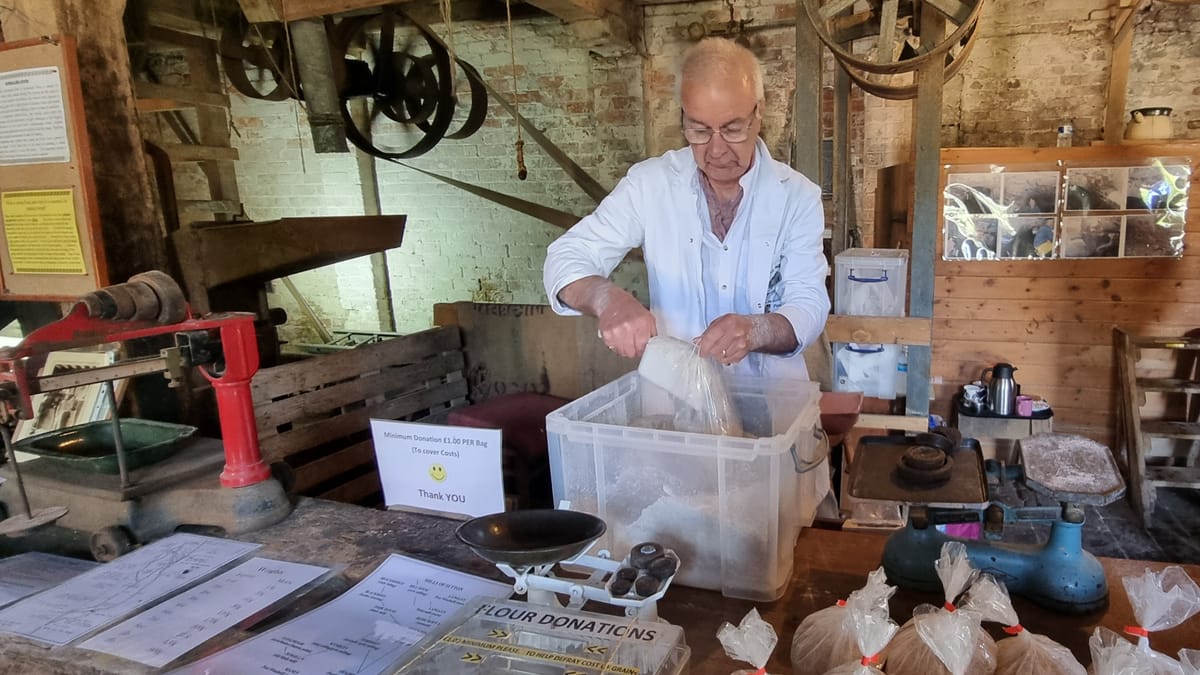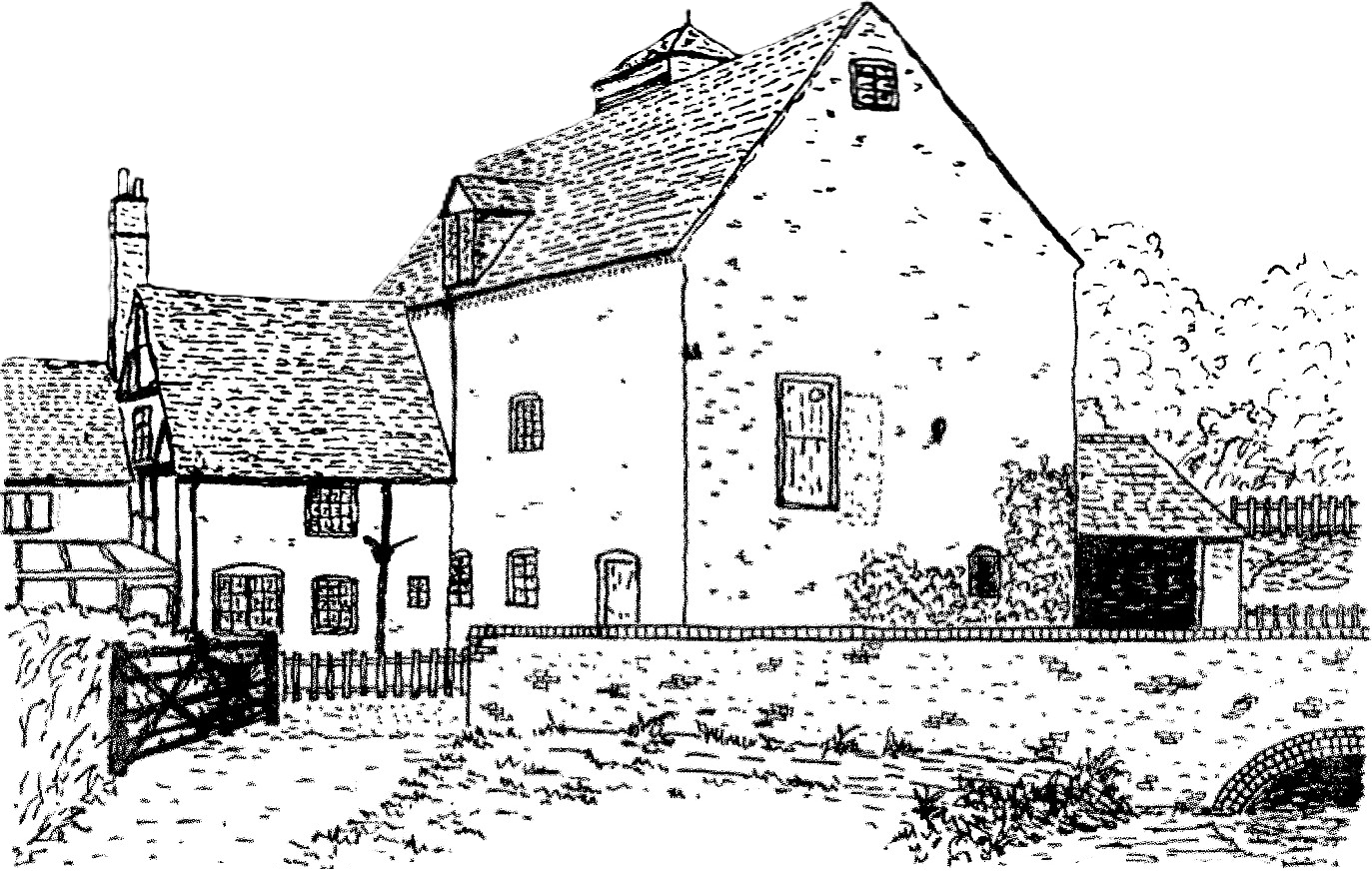Our New Hall Mill Flour

Our stone-ground wholemeal flour is available in the Mill on Open Days in return for a donation. We don't mill flour at any other time.
Wholemeal flour contains ground bran - the outer casing of the grain - which reduces the strength and elasticity of the gluten. For recipes where yeast is used and you require a good rise, the traditional remedy is to mix wholemeal flour with strong white flour, which reduces the overall proportion of bran.
We always aim to buy grain with a naturally high gluten content, which is better suited for breadmaking, whether by hand or when using bread making machine. Hard wheat grain such as durum wheat, hard red winter wheat, and hard red spring wheat, has the highest concentration of the two proteins which make gluten, (gliadin and glutenin), and therefore produces a stronger flour.
The specific wheat we use may vary throughout the year — sometimes it's a single variety, other times a blend — depending on suitability and availability. The type of grain may even change during the course of the milling season.
We prioritise local supplies whenever we can, but this is becoming increasingly difficult to source. Availability of suitable wheat can be affected dramatically by fluctuations in price and climate-related challenges, such as heavy rainfall or extreme temperatures, which can devastate a harvest. We are always thankful to other millers who offer support and recommendations when needed.
Our flour is always completely additive free. The whole grain enters the milling process, and the equivalent weight emerges at the bagging point. However, as a traditionally milled flour, our flour is not subject to industrial heat-treatment or processing, and we only have rudimentary wheat cleaning equipment, so some impurities may be milled with the wheat.
Our wheat does not, therefore, meet commercial production standards. Visitors should assess its suitability for their specific needs, and we are unable to provide formal usage recommendations. That being said, many of our visitors and volunteers have used the flour consistently over a period of several years, and have been very happy with it!
Flour for cooking should be stored in an airtight container in a cool, dry, dark place like a pantry or a kitchen cupboard. We've heard that for longer-term storage, whole grain flour can be kept in a sealed container in the freezer. Have you tried this? Did it work?
If you would like to try cooking with wholemeal flour, please take a look at our growing collection of recipes. We'd love to hear from you and see photos of what you've made with our flour!
